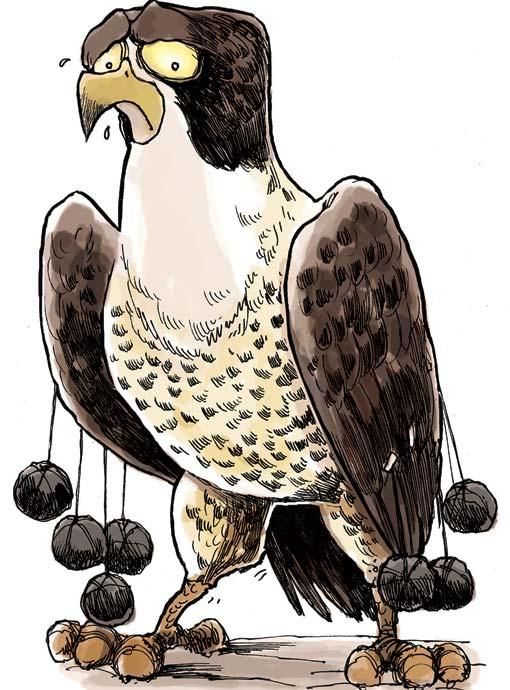The United Arab Emirates is not at its best when it comes to press freedom. This bleak diagnose of the press freedom in the UAE is attested to by the frustrated local writers and is confirmed by the latest Freedom House report which ranks the UAE 137 out of 196 states worldwide.
This is not a very bright ranking for a country that prides itself of being the first and the best in socioeconomic status. The economic freedom ranking of the UAE is impressive. The UAE ranks 24 worldwide. Its human development index is as solid as it can be.
The UAE is in the top 50 list of best countries. The country's social liberty standing is just as formidable. There is plenty of social freedom around, probably more than can be digested.
Even the UAE's information, communication and technology (ICT) scores are outstanding. It is ranked 27 overall out of 55 countries included in the global ICT survey.
Yet when it comes to the thorny issue of press freedom and political liberty, the UAE lags behind miserably. This begs the nagging question as to why the UAE is not at its best when it comes to freedom of the press.
Who is responsible for this unflattering state of press freedom in the UAE: is it the government, the society, the media establishments or the journalists and the writers at large who have not put up the fight to raise press freedom parameters in the society?
It is always convenient to blame the press freedom deficit on the government. Needlessly, governments everywhere including democratic governments are notorious for their dislike of active and critical press.
Press freedom translates into more societal constraints on government authorities. No government in the world likes to be accountable; the UAE government is no exception. It has done everything possible to gently court the media, keep it happy but under its tight benevolent watch.
The government has made sure that the media does not develop an independent mind of its own. A media that lacks independence is a great loss to good governance and the building of a healthy society.
Yet it is not all the government's fault. Ironically, the government in the UAE looks much more open minded than the society. Politically, the UAE society has always acted conservatively and modestly. It still remains pretty much a tribal society in essence.
As progressive as it looks to outsiders, the UAE society is very cautious with regards to demand for democracy, transparency, political reform and press freedom. These are hardly hot societal issues in the UAE.
Mindset
The media in the UAE is in tone with this rather politically timid mindset prevailing in the society at large. There is no discernable demand for more political freedom and the citizens of the UAE have not been very big champion of press freedom either.
For the majority of the people in the UAE, social liberty and economic abundance is nicely juxtaposed for the rather restricted political and press freedom.
Lacking a politically active society and demanding readers, the big media houses in the UAE are in no mode to challenge government policies and raise the banner for more press freedom. If the society is contempt, it is not the business of the media to fight its fight. It does not work that way anywhere.
Of course, during the last four decades there have been numerous cases where the media has stood up its ground and got itself entangled with the government over press freedom. Some have paid the price, got the jolt and had to back away.
By the end of the day, the media houses turn most of their attention to the lucrative business side of the business. They are reaping huge returns on their investments. They netted more than Dh600 million in 2007.
The oligarchic media houses are mindful of the unusual business opportunities and have no intention to rock the boat. There is too much at stake commercially.
As all the reasonable businessmen do, no one wants to get into confrontation with the government or cross the red lines.
Everyone seems to be these days better off living in relative safe green zone. Self censorship which is much more elaborate than government censorship becomes a daily routine.
This is widely practised by the commercially successful media houses in the UAE. It is simply the first principle of self preservation which keeps the status quo to everybody's liking. The biggest loser is press freedom.
Journalists and writers are the ones who are most affected by the limited press freedom in the UAE. This tiny social group of UAE citizens is good at complaining but lousy at acting. Very few have the courage to go public with their critical opinion.
Others are too timid to demand more press freedom. The rest have found it more comforting to practice self censorship which keeps everyone in line with the prevailing view. They all know perfectly well that freedom is not going to come this way.
Without courage freedom is merely a sound bite. Freedom is not God given and it certainly doesn't come via Washington either. Historically the formula has always been: no courage, no freedom.
Regardless of who is to blame, there is a deficit of press freedom in the UAE. It needs to be talked about honestly and turned into a public issue. The country needs a strong doze of press freedom and political reform.
This will certainly enhance its socioeconomic successes. It is also good for the UAE's global image and as a progressive state living in the largely undemocratic Arab World.
Dr Abdulkhaleq Abdullah is a professor of Political Science, Emirates University.











